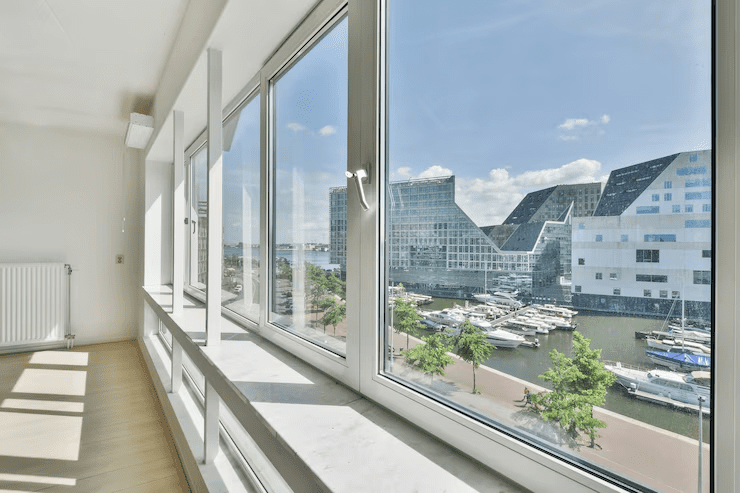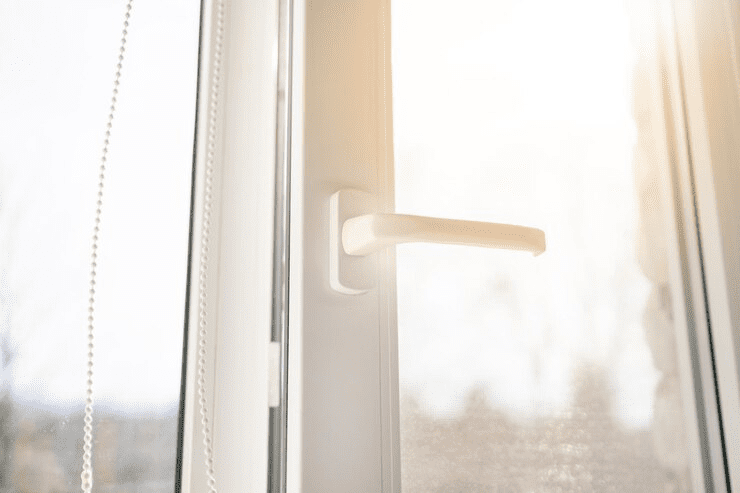>700 reviews

Choosing the right windows for your home isn’t just about aesthetics; it’s about functionality, continuity, and how well they fit into your life. Fiberglass and vinyl are two popular options, each offering unique benefits and downsides. Whether you’re focused on energy efficiency, budget, or lifestyle, understanding the key differences between these materials can help you make an informed decision that you won’t regret down the line. Let’s explore the ins and outs of these two window types and find the perfect fit for your home.
Windows might seem like a basic part of your house, but picking the right type can significantly affect your comfort and expenses. Enter fiberglass and vinyl — two common choices that often leave buyers scratching their heads. Fiberglass offers incredible sturdiness, while vinyl has won hearts for being easy on the wallet and maintenance-free.
Think of fiberglass as the seasoned marathoner and vinyl as the sprinter. Fiberglass excels in durability, handling years of wear and tear effortlessly. Vinyl, meanwhile, is your reliable, no-fuss option, ideal for those seeking decent performance without stretching their budget. Let’s explore what sets these materials apart.
When selecting windows, you’re not just filling the empty spaces in your walls. The choice of material impacts everything from energy savings to aesthetics and even the resale value of your home. It’s like picking the perfect vehicle — you wouldn’t choose a sports car if what you needed was a dependable SUV for the family.
Fiberglass and vinyl both have unique strengths and trade-offs. Fiberglass is your go-to for durability and rigidity, while vinyl shines for its straightforward, no-fuss appeal. Knowing what factors to prioritize — whether that’s lifespan, thermal performance, or cost — will help you make the right decision.

Fiberglass windows are like the overachievers of the window world — crafted with precision and designed for versatility. Their production involves pultrusion, a method where glass filaments are pulled through a resin to create a robust, lightweight frame. This process gives fiberglass the strength of wood while avoiding the risks of rot or decay.
What makes fiberglass unique is its synchronized expansion with glass. This reduces stress on seals and minimizes drafts over time. Imagine a duet where both players stay in perfect harmony — this is how fiberglass frames and glass panes interact to keep your home insulated.
Vinyl windows, crafted from PVC (polyvinyl chloride), are the affordable all-stars of the window world. Lightweight, cost-effective, and easy to produce, they’re the go-to choice for homeowners who value simplicity. While they might lack the industrial charm of fiberglass, they’re as dependable as your favorite pair of sneakers.
What makes vinyl appealing is its combination of affordability and solid performance. Homeowners often find they can achieve energy savings and a good look without blowing their renovation budget.
When it comes to standing the test of time, fiberglass takes the lead. These windows can handle harsh climates, heavy use, and prolonged wear and tear without faltering. Vinyl, while durable in its own right, tends to show signs of aging in extreme temperatures, such as warping or cracking. If you’re considering replacing your old windows with more durable ones, window replacement services can help you choose the best option for your home.
Key Points for Durability:
Both materials score high in insulation, though fiberglass has the upper hand in keeping the temperature steady. Its composition allows for excellent thermal control, ensuring your home stays comfortable through the seasons. Vinyl is no slouch either but may require precise installation to achieve similar results.
For Maximum Insulation, Consider Adding:

When it comes to pricing, vinyl takes the crown for being budget-friendly.
These windows are perfect for cost-conscious homeowners looking for solid energy savings without overspending. Fiberglass, though expensive, makes a compelling case for those seeking an investment in performance and durability.
In Short:
Installing fiberglass windows requires precision and expertise due to their weight and rigidity, which often translates to higher labor costs. Vinyl, being lighter and easier to handle, generally involves a quicker and less expensive installation process. If you have double hung window repair needs, professionals can help address any installation issues to prevent drafts and improve energy efficiency.
Pro Tip: Always opt for professional installation. Even the best materials can fail if improperly fitted, leading to drafts, leaks, and higher energy bills.
Fiberglass windows are virtually self-sufficient, requiring only the occasional wash with soapy water. Vinyl, while also low-maintenance, may discolor or become brittle in certain environments. Proper care can extend their lifespan significantly.
Care Tips:
Still can’t decide? Here’s what experts suggest:
The right windows are out there; you just need to find the perfect fit for your home and lifestyle.
Contact us now for a free estimate and take the first step toward repairing your windows!
You May Also Be Interested In:
Please leave your contact details.
The manager will contact you shortly.